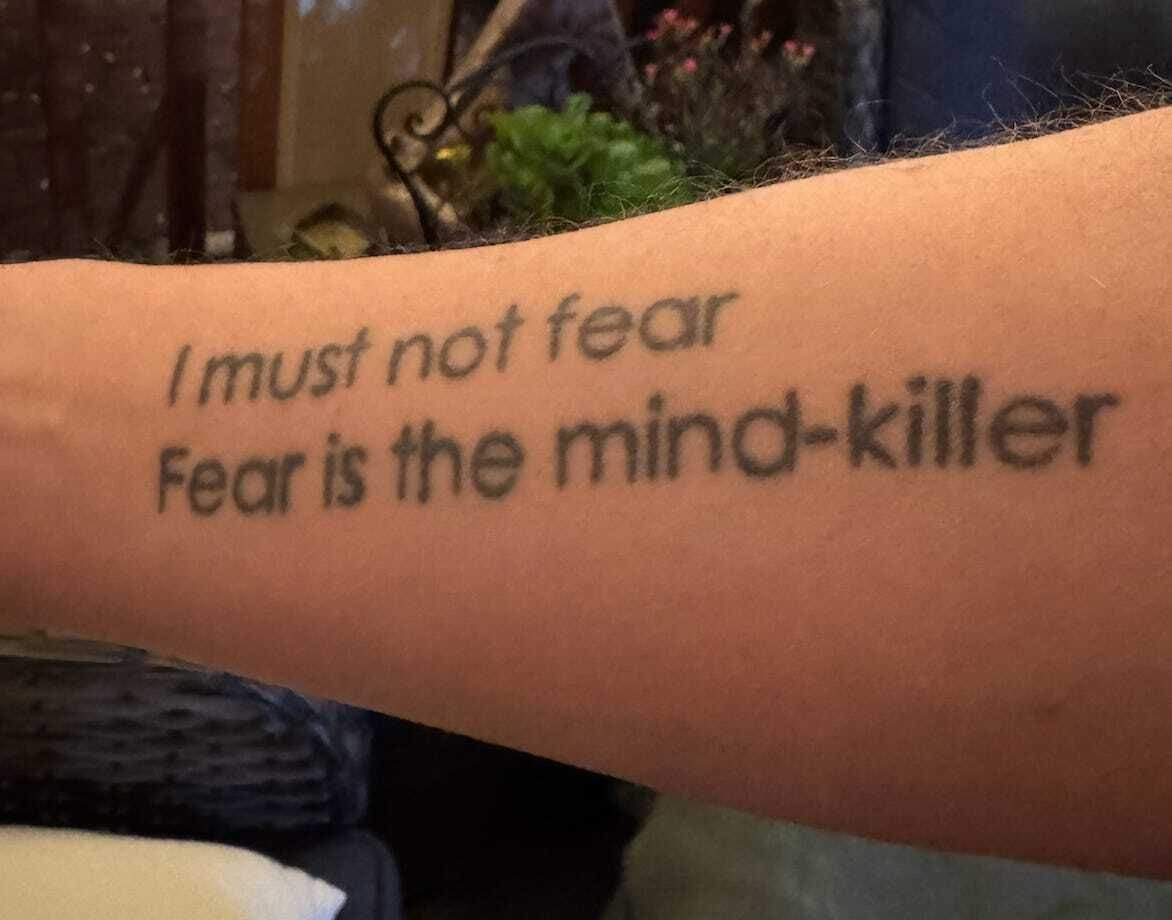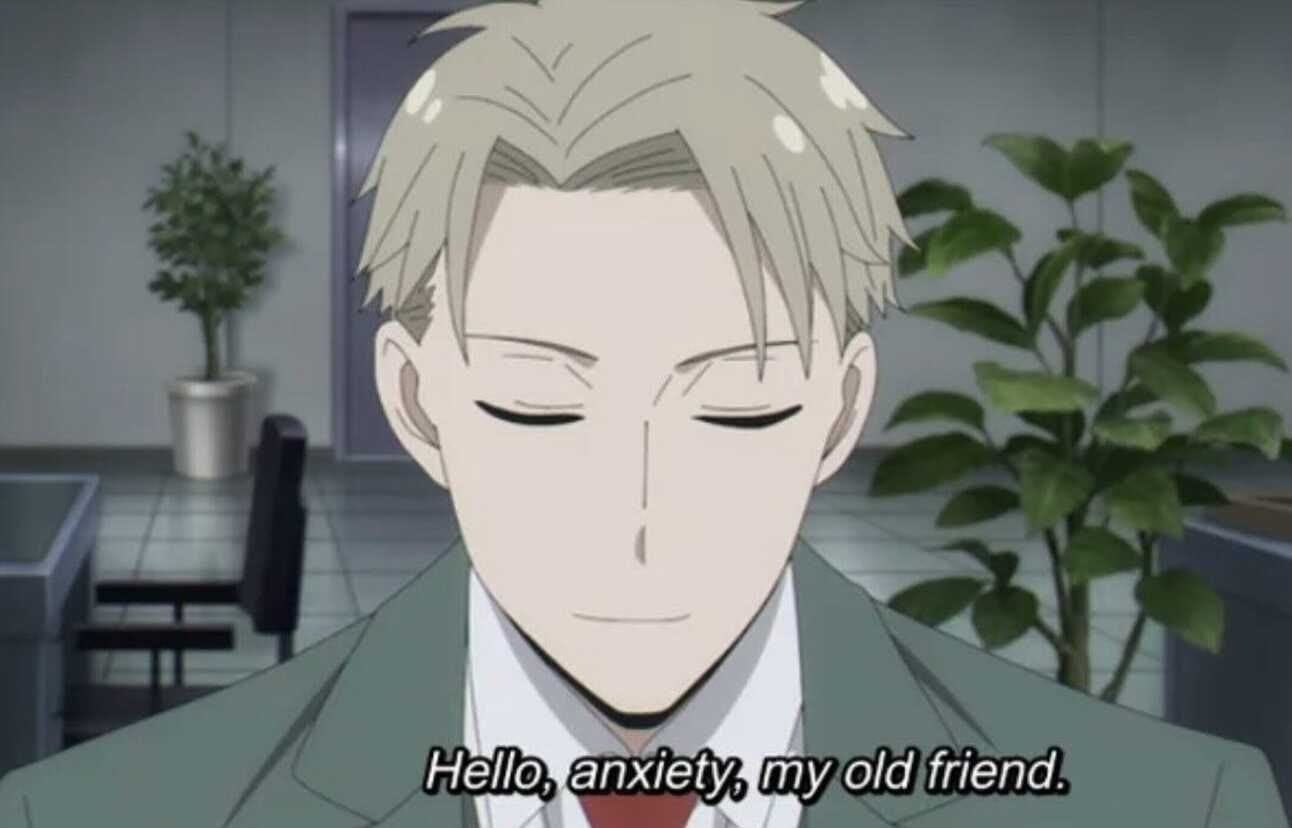Anxiety Nation: Finding Calm in a Stressed-Out World
Could there be an upside to anxiety?
Looking back, it amazes me that I wasn't diagnosed sooner.
I can still see myself on the first day of first grade, catching a glimpse of my reflection in a mirror. With my curly hair, something about the way I looked struck me as different—silly, even.
I didn't look like the other kids.
And for whatever reason, this realization sent me spiraling. I remember spending that entire recess pacing back and forth, from the slide to the swings. Back and forth, back and forth, consumed by worry over how different I looked, as if my reflection was more than just a mirror—it was a window into everything that made me feel separate from the crowd.
That moment at recess wasn't isolated. In seventh grade, I threw myself into creating a chain-reaction science fair project—dozens of mousetraps glued to a giant board, each one positioned to trigger the next like mechanical dominoes. I obsessed over it, testing and retesting the sequence until my fingers were peppered with snap marks and my parents had to force me to take breaks. On the day of the fair, when a few traps failed to trigger, my world collapsed. It didn't matter that I got an A, or that onlookers appreciated my attempt. All I could focus on were those few silent traps, those tiny imperfections signaling my failure.
Years later, when a doctor finally diagnosed me with Generalized Anxiety Disorder, it started to make sense—the pacing first grader, the obsessive teenager with his mousetraps, all of it. Anxiety can feel like a smoke alarm blaring in an empty house—no fire, just a mind wired to detect danger when there is none.
I am not alone. Even before COVID-19, anxiety disorders ranked as our most prevalent mental health challenge, affecting over 300 million people worldwide. In the United States alone, one in seven adults reported experiencing anxiety symptoms during any given two-week period in 2019. Then the pandemic struck, triggering a 25% surge in cases worldwide.
And then there is the presidential election. Anxiety is rippling through our collective consciousness. The constant stream of headlines, the polarized social media debates, the uncertainty about our future—it's like the whole nation is caught in that same playground spiral I experienced in first grade. We're all pacing back and forth, checking and rechecking, trying to control the uncontrollable.
So this week, let's talk about anxiety: where it comes from, how to deal with it, and why it isn't always such a bad thing.
Why do we get anxiety?
Anxiety is fundamentally a survival mechanism—our brain's own handy alarm system. At its core is the amygdala, which works a lot like a super-sensitive smoke alarm. When it spots something it thinks might be dangerous, the alarm goes off, getting you ready to either face the threat, run like hell, or just drop into the fetal position. This whole system made sense back when our ancestors were dealing with hungry predators. Basically, the folks who were better at spotting trouble lived to tell the tale and then passed those alert genes on down to us.
These days though, our internal alarm system isn't dealing with lions and bears. Instead, it's going off at modern "threats" like job interviews, social situations, or a "we need to talk" text. But our bodies respond the same way. Our hearts start to race, the senses go on high alert, the muscles tense and are ready for action. There's likely some sweating going on. It's great.
And for some of us, our amygdalae work a little too hard and have a tendency to send us into a state of high alert for seemingly no reason. This heightened sensitivity can come from a few places: it often runs in the family (thanks, Mom) or develops from our life experiences, especially during childhood. Everything from past trauma to daily stress to the constant hum of modern life can turn our anxiety dial up to eleven. And it makes even small things feel overwhelmingly loud.
What you can do?
When anxiety hits, it can feel like there's nothing you can do. The overwhelm is real, and nothing feels right. But there are techniques that can help turn down anxiety's volume. Here are some that have helped me—I hope they can help you too.
Box Breathing
Box breathing, also known as four-square breathing, is a technique used by Navy SEALs in high-stress situations. It actually shifts your nervous system from "fight, flight, or faint" to "rest and digest."
Here's how it works:
Inhale through your nose for a count of 4
Hold that breath for a count of 4
Exhale slowly for a count of 4
Hold empty for a count of 4
Repeat
This is my go-to in particularly high-stress moments. It's simple, discrete, and you can do it anywhere.
Meditation
I know, daily meditation sounds pretty woo-woo, but it's less about achieving perfect zen and more about training your brain to stay steady. Here's how to start:
Find a quiet spot where you won't be disturbed
Start small—even 5 minutes counts
Close your eyes or lower your gaze
Focus on your breathing—just notice it, don't try to change it
When your mind wanders (and it will), gently bring it back to your breath
End with a moment of gratitude or intention
The magic isn't in having an empty mind; it's in noticing when you've drifted and gently returning. Each time you come back, you're building mental strength.
Exercise
Exercise is a big deal and something I personally need to do more of. Movement is medicine for an anxious mind.
You don't have to join a CrossFit gym (although it might help). A brisk 30-minute walk, a yoga session, or an intense workout all work to burn off stress hormones and release those feel-good endorphins. Find something you actually enjoy (or at least don't hate) and make it non-negotiable—like brushing your teeth.
Little reminders
Sometimes the simplest tools are the most effective. I keep various quotes in places where anxiety tends to ambush me:
By my computer at work is a post-it that just says "Don’t forget to breathe."
I sprinkle quotes around my various project files in Notion. For example, "Sometimes the firmest steps are taken with trembling legs."
I have the Litany Against Fear from Dune tattooed on my arm.
These might sound cheesy (or extreme), but they work for me. These small anchors help ground me when anxiety tries to pull me away.
Sleep
Sleep and anxiety have a complicated relationship—poor sleep amplifies anxiety, and anxiety disrupts sleep. It's a vicious cycle.
To be honest, my doctor prescribed me Trazodone, and it can be a real lifesaver. But beyond that, start with the basics: consistent bedtime and wake-up times (yes, even on weekends), a cool dark room, and no screens an hour before bed (their blue light is like mental caffeine). Create a wind-down routine your brain can recognize as a signal for sleep—maybe reading or listening to calm music. The goal is to make your bedroom an anxiety-free zone.
Ask for help
When should you seek professional help? Well there are some signals to look for: if anxiety regularly interferes with your daily life, if you're avoiding things you used to enjoy, if you're experiencing panic attacks, or if you've started using alcohol or other substances to cope.
Think of therapy like physical training for your mind—sometimes you need a coach to teach you proper form. And if medication becomes part of your treatment plan, that's okay too. I know there is a ton of stigma around medication. But, just like some people need glasses to see clearly, some need medication to help regulate their anxiety response.
Remember: managing anxiety isn't about achieving a state of permanent calm. It's about building a toolkit of techniques that work for you, and knowing when to use each tool. Some days might require your full arsenal, others just a few deep breaths.
In Conclusion
I'll be honest, it feels a little rich writing about dealing with anxiety when I struggle with it every damn day. I have bouts of insomnia. Little things set me off for no reason. And I wake up most days with this little hum of stress in my gut. It's just there, buzzing, pulling my focus.
But anxiety isn't just my burden—it's also my superpower.
That same hyper-vigilance that keeps me up at night? It makes me really good at spotting potential problems before they arise. The overthinking that can fill me with dread? It transforms into meticulous attention to detail at work. That constant need to prepare for worst-case scenarios has turned me into someone who shows up over-prepared for every meeting, every project, every deadline. My internal alarm system generally makes me proactive rather than reactive.
Anxiety has also made me a more empathetic listener. I know what it's like to be overwhelmed, to feel that weight. And this gives me a preternatural sense of when others are anxious or uneasy, and that awareness creates a natural empathy that helps me connect more deeply with the people in my life.
And perhaps, more than anything, anxiety has taught me resilience. There's an undeniable strength in facing an unearned feeling of dread, and moving forward anyway. Each day I get out of bed, force gratitude into my being, and look for beauty in the world. Learning to manage the unpredictable has made me both adaptable and persistent—qualities I might not have developed otherwise.
The trick isn't eliminating anxiety—it's learning to harness it. While I wouldn't call anxiety my favorite companion, it has shaped me into a more organized, prepared, and empathetic version of myself. It’s a constant reminder that even the parts of ourselves we struggle with can, in their own way, make us a little better, day by day.
Ever forward.
— Derek (aka Chief Rabbit)
Enjoying Chief Rabbit?
This newsletter is free and always will be. But if you’d like to support this work, you can. You’ll get monthly Q&As, vote on topics, stickers, and help keep this ad-free.
You can also follow me on Threads where I sound off on all sorts of nonsense OR LinkedIn where I tend to be a touch more serious.
Also, thanks for being someone who reads to the bottom of the page, you’re a special human.





Wow, Derek, thank you for this beautifully honest and insightful piece. Your metaphor of anxiety as a smoke alarm blaring in an empty house resonated deeply with me—it perfectly encapsulates the irrationality and intensity of anxiety while grounding it in our evolutionary wiring.
I appreciate how you’ve woven practical strategies with your personal journey. Tools like box breathing and meditation feel more approachable when paired with lived experience. Your description of reframing anxiety from a burden to a superpower is inspiring. The idea that anxiety’s hyper-vigilance can foster empathy and meticulousness reframes it as something that, while challenging, also offers growth and connection.
Your writing strikes a perfect balance between vulnerability and empowerment, and I’m grateful for the reminder that resilience doesn’t mean eliminating struggle but learning to navigate it with grace and curiosity. Looking forward to more from Chief Rabbit.
Thank you. I have trouble with anxiety. I need to use the tools to tame it!